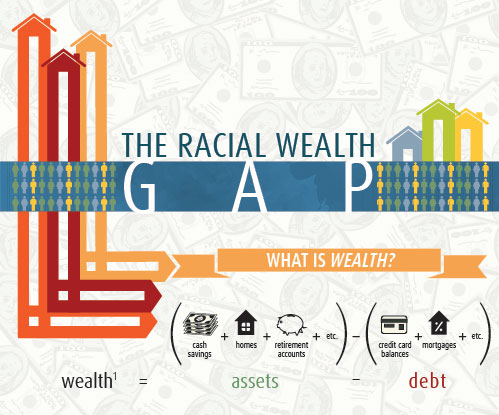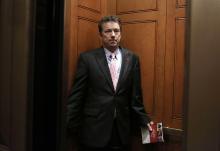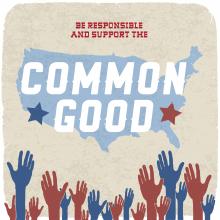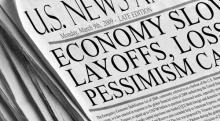sequester
 The United States is the richest country in the world, but only three-quarters of Americans have enough to eat.
The United States is the richest country in the world, but only three-quarters of Americans have enough to eat.
New data from the Pew Research Center shows that nearly a quarter of Americans had trouble putting food on the table last year — 24 percent is a lot of hungry people in the richest country in the world. It’s not normal, either – most other advanced economies had much lower rates of hunger. We think that the U.S. economy is similar to that of Canada or Britain; our hunger rate is closer to that of Indonesia, South Korea, or Greece.
Numbers like that are shocking, because we prefer to think of ourselves in nationalistic terms. “The richest, most powerful country on Earth” definitely makes us feel better than realizing that things aren’t so great for many of us. One in four of us is hungry.
We don’t like to think about this, but we aren’t doing so well by a lot of standards. Last month, UNICEF published a report on child wellbeing in developed countries. The United States was ranked 26 out of 29, above Lithuania, Latvia, and Romania. Our children were doing worse than those of Greece.
Is this really where we want to be?
Due to sequestration, programs that fight domestic violence and sexual assault will lose 20 million dollars in funding this year. Congress has voted to restore funding to tuition aid for service members and the Federal Aviation Administration but not the Violence Against Women Act. It is estimated 70,120 fewer domestic violence victims will have access to recovery programs and shelters and 35,900 fewer people will get help obtaining non-shelter services such as restraining orders and sexual assault treatment. Mother Jones reports:
"The tower is understaffed and the rescue plane can't land," says Kim Gandy, president and CEO National Network to End Domestic Violence. "We're talking about really vital services to people who are already in a terrible situation and really in need of emergency services—and there aren't alternatives."
Read more here.

MICROSOFT WORD is one of those computer programs that mimics the power of the human brain: It has enormous capabilities—specifically for document preparation—but we use only a tiny percentage of it, mainly to make signs for our yard sale next weekend. Naturally, we do this during office hours, since heaven knows the weekend will be busy enough.
Likewise, our brains can handle numerous complex tasks, such as learning multiple languages—a capacity I would never use, since I'm currently inside my home hiding out from the sequester—although for some reason the only thing it lets me remember from high school is that you should never talk to a football player's prom date, because you can get the snot beat out of you.
Similarly, Microsoft Word can do things you never asked for.
Recently a colleague was typing something religious for our next issue when Word suddenly offered to translate it into French, and then back into English again. Always open to distractions when typing religiously, my colleague clicked, "Well, sure, why not?" (Control/Shift/F2/blink) and the result revealed why it's often difficult to find common ground with people from other countries: They talk funny.
In some languages, for example, sounds we assume are caused by the speaker dislodging a hairball from his (or her) throat are actually words meant to communicate important messages about, say, a nation's willingness to go to war if not left alone, which the U.N. translator totally misses because he (or she) is thinking about that hairball.
The effects of the federal funding sequester are beginning to hit, and it’s not a pretty picture. Amanda Terkel and Sam Stein at Huffington Post write that while the damage is being downplayed, it is very real and painful.
“Organizations and companies have begun laying off workers, while many more have decided not to staff vacant positions. Schools on military bases are contemplating four-day weekly schedules. Food pantries have closed, as have centers that provide health services. Farmers have been forced to go without milk production information, causing alarm in the dairy industry and the potential of higher milk prices. Workers at missile-testing fields are facing job losses. Federal courts have closed on Fridays. Public Broadcasting transmitters have been shut down.”
They go on to list 100 specific stories from the past week of cuts that are taking place across the country. It’s a broad swath effecting many thousands of people. And the longer it goes on, the worse it will become.

This week a large number of Americans are celebrating Holy Week, leading up to Easter Sunday. Churches will be packed with both the regulars as well as the once- or twice-a-year worshippers for the "Super Bowl of Sundays" to celebrate Christ’s victory over death and sin and his glorious resurrection.
In the midst of an exasperating and polarized political debate around the U.S. budget, our national and political leaders can learn valuable lessons from Holy Week. Whatever your faith background may be, we could all benefit from a greater commitment to the humility, shared sacrifice, and hope that Holy Week embodies. An extra dose of humility, sacrifice, and, ultimately, hope represent the balm that could bridge many of our ideological differences and resolve the current political impasse around the budget that has paralyzed our political system and divided the nation.

During this Holy Week, Christians around the world turn inward to reflect on the mystery and miracle of the death and resurrection of our Lord, Jesus Christ. Those two surpassing events are more than good enough to occupy the mind and heart of every believer.
But they are not all that Jesus did in these eventful days. As any student of the scriptures will know, Jesus did not go quietly to the cross. Three days before his execution, he stormed the temple and challenged the seat of theocratic power in Jerusalem, condemning the pharisaic elite who "preach, but do not practice" and "tie up heavy burdens, hard to bear, and lay them on the people's shoulders." (Matt. 23:3-4) He accused as hypocrites leaders who make token offerings yet "have neglected the weightier matters of the law: justice and mercy and faithfulness … Inside they are full of greed and self-indulgence." (Matt. 23:23,25)
In his final teaching before the events of Maundy Thursday and Good Friday began, Jesus embraced those who are oppressed and cautioned his disciples that acts of love and mercy are the measure of a heart touched by grace. "For I was hungry and you gave me food, I was thirsty and you gave me drink, I was a stranger and you welcomed me, I was naked and you clothed me, I was sick and you visited me, I was in prison and you came to me … Truly, I say to you, as you did it to one of the least of these my brothers, you did it to me." (Matt. 25:35-40)
In honor of the occasion, Congress will close its doors and lawmakers will head home to be with their constituents for the Easter recess. If inside reports are to be trusted, they will leave Washington "armed with excuses" that explain away the latest fiscal fiasco, and the people will have little to say in reply. I pray it isn't so.

“I believe the sequester is a pittance.”
Those were conservative Sen. Rand Paul’s words in an opinion piece this week about the sequester – severe and arbitrary cuts to the federal budget that Congress did nothing to stop. We could give him the benefit of the doubt and assume he hasn’t seen the numbers:
- The nutrition program for women with children — WIC — will have to turn away 600,000 to 775,000 women, many of whom have young children.
- The 3.8 million currently unemployed workers will have their support cut by 11 percent.
- 100,000 low-income families will lose their housing vouchers.
- 125,000 individuals and families are now at risk of homelessness.
That doesn’t sound like a “pittance” to me.

Politics at its best serves the common good — far above any one interest or political party. And right now in Washington, we see that playing out as we continue to reach accord on immigration reform. But when it comes to our budget debate, partisan ideology and special interests are winning out over the common good.
The ever-looming “sequester” that was never supposed to happen goes into effect tomorrow. Billions of dollars will be cut from domestic and military spending without any plan or strategy; jobs will be lost and people will suffer. Public frustration is growing with our elected officials, while they continue to argue over the role of government instead of governing responsibly. The press discusses who wins and loses in the polls, but it is clear that it is the common good that is losing.
On the other hand, immigration reform is being discussed, at the same time with the same political players, in a very reasonable and hopeful way. On that important policy change, bipartisan work is going forward to shape legislation that could pass both houses of Congress.

Current events, like much about our lives, frequently leave us hopeless, fearful, and uncertain. Religious faith isn’t a matter of wishing away these experiences; it involves perceiving God in the midst of our hardships.
I still remember one Friday night when I, an overly sensitive preteen, made a conscious decision to stop watching the nightly news with the rest of my family. I found what I saw too depressing and threatening: crime after crime, yet another house fire, economic challenges, too much Cold War.
I don’t recall how old I was when I mustered the willpower to face the news again on a regular basis. But a quick scan of the latest headlines makes me wonder why I still subject myself to it: the imminent and potentially crippling sequester, American drones flying in and out of Niger, Iran’s growing nuclear capability, recurring bloodshed in Syria. Maybe I had it easier back in middle school.
If you haven’t been paying close attention, or are still confused by the “sequester” heading for us like a runway train, veteran Capitol Hill reporter Steven T. Dennis offers “15 Things You Need to Know About the Sequester.” He calls it “things you need to know about how the sequester came to be, how it will be implemented, and the choices lawmakers face as they seek to avert it.” It’s a helpful guide thrugh the maze.

The sequester battle is a good but tragic example of how the idea of the common good is failing in American politics. By contrast, the growing bipartisan support for comprehensive immigration reform is an alternative example of how a moral issue can rise about our ideologically driven politics.
The faith community has stepped into both issues with a call for political leaders to serve the common good. On immigration, political leaders are listening to the faith leaders; on the debates about our nation’s fiscal soul, political leaders need to listen better.

I know I am not the only one who is sick and tired of Washington’s manufactured crises around budget and deficit debates. Brinksmanship has replaced statesmanship in trying to find a sound path to fiscal responsibility. It is time to make the right moral choices that will defend the most vulnerable and pursue an opportunity agenda to reduce the highest poverty rate in 50 years.
Ideological debates over the role of government are the real battle in the nation’s capital — more than the debt crisis. Political calculations about the next election are more important to many of our political leaders than the common good of the country.
It’s just time to move on from the partisan politics that has polarized and paralyzed us for so long — by committing ourselves to moral issues that could and should bring us together. The first will be comprehensive immigration reform, which will change the lives of 12 million people in this country, lift many out of poverty, and help the economy at the same time. This is a clear example of how the faith community has changed, and now come together to become a political game changer in Washington, D.C., at both ends of Pennsylvania Avenue on both sides of the aisle.
And it’s time to make another moral commitment in the midst of our growing economic recovery — to include poor families and change poverty into opportunity. Fighting poverty must not be a partisan issue. When we look at both the causes and the solutions, this battle should bring both liberals and conservatives together. Overcoming poverty, by creating opportunity, happens because of three very basic things that most of us can agree on: family, education, and work. All three are crucial and necessary in moving people out of poverty and into opportunity.
Let’s break it down.